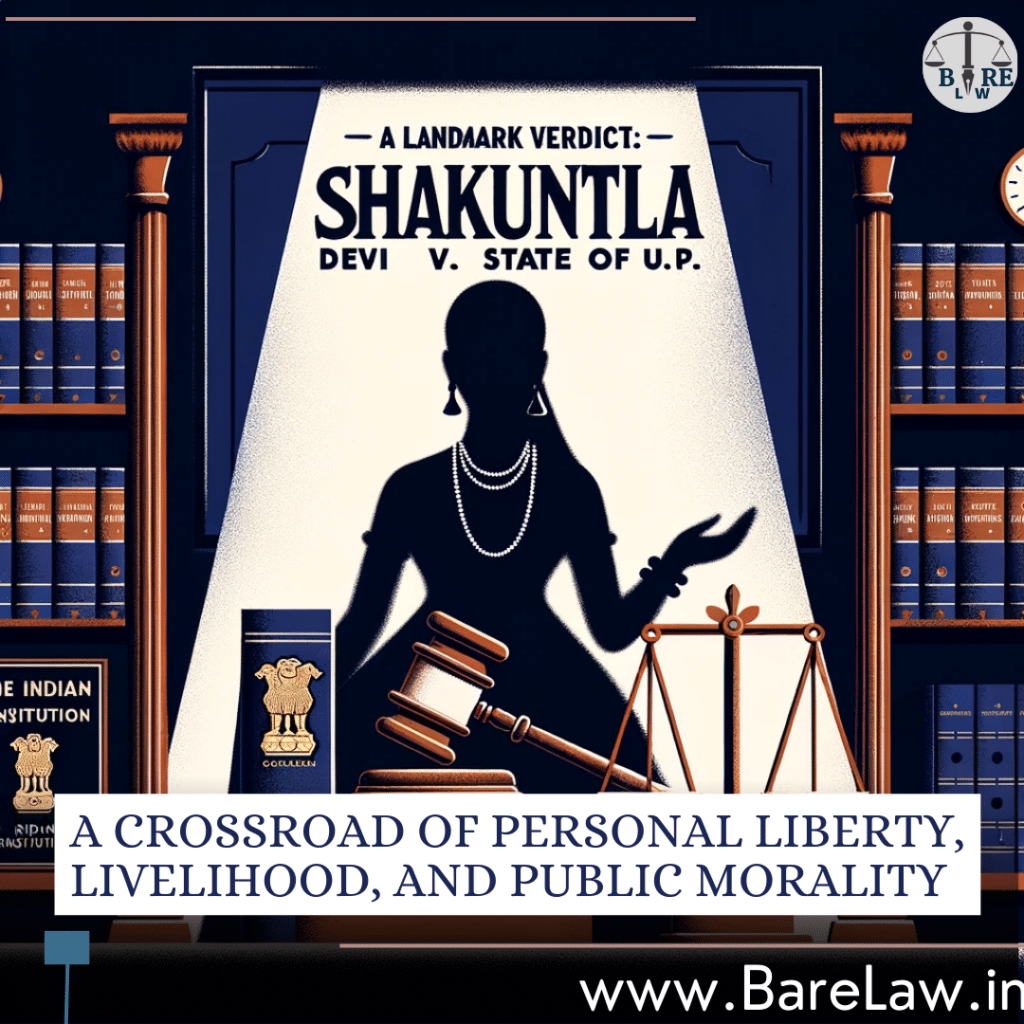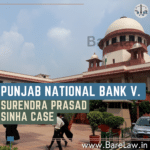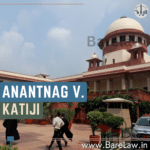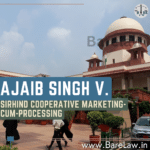
The Landmark Case of Shakuntala Devi v. State of U.P.: A Crossroad of Personal Liberty, Livelihood, and Public Morality
The case of Shakuntala Devi v. State of U.P. is a seminal one, shedding light on significant legal and constitutional issues in India. Shakuntala Devi, a sex worker from Lucknow, was arrested and detained under the Immoral Traffic (Prevention) Act, 1956 (ITPA), which led to a legal discourse on the rights of individuals engaged in sex work1.
The arrest, based on allegations of prostitution, brought forth a judicial scrutiny of the ITPA, particularly focusing on its constitutionality and its alignment with the fundamental rights guaranteed by the Indian Constitution1.
Legal Issues:
Violating Personal Liberty:
Shakuntala Devi’s arrest and detention were scrutinized by reference to Article 21 of the Indian Constitution, which guarantees every citizen personal liberty. The assertion here was that Shakuntala Devi’s detention without following due process violated this basic right. This aspect of the case underscored the need for law enforcement processes to be fortified with constitutional provisions that protect people from being abused.
Constitutionality of ITPA:
The Immoral Traffic (Prevention) Act, 1956 (ITPA), came under scrutiny because it made some aspects of sex work a criminal offense. The legal question was whether or not the Act violated their rights to make a living and personal freedom. This aspect of the case emphasized upon laws conforming to the constitutional guarantees so that they may not wrongfully impose criminal responsibility on persons undermining their essential liberties.
Right to Livelihood:
This case raised issues regarding whether sex work as an occupation is protected as a fundamental right in India’s constitution. It brought up wider debates about economic rights and individual freedom in choice of one’s job. It sparked off talks about whether professions should be regulated by the state and if such regulation can curtail freedom of individuals in choosing an occupation especially when it is voluntary and lacks coercion.
Arguments:
Both sides had good points. Shakuntala Devi’s counsel argued against her detention without due process and defended her right to choose her occupation, while the State of U.P. justified the enforcement of ITPA to curb immoral activities and uphold public morality. These arguments showed how individual freedom frequently clashes with community moral values.
Implications:
Reasserting Personal Liberty: The significance of personal liberty acknowledging livelihood as an integral part of life and personal liberty1.
Limits of State Intervention: It marked the proper exercise of state power in regulation for societal welfare purposes, differentiating community morality from individual rights1.
Conclusion:
This case is a landmark decision in Indian law, highlighting the precarious balance between personal freedom, livelihoods, public morality and state regulation. It clarified the limits of government authority and protection of individual rights against it leaving lasting impact on India’s legal landscape.
Thus, Shakuntala Devi v. State of U.P. is a milestone in understanding interplay between state control, people’s moralities and individual freedoms in the dynamics of Indian laws.





